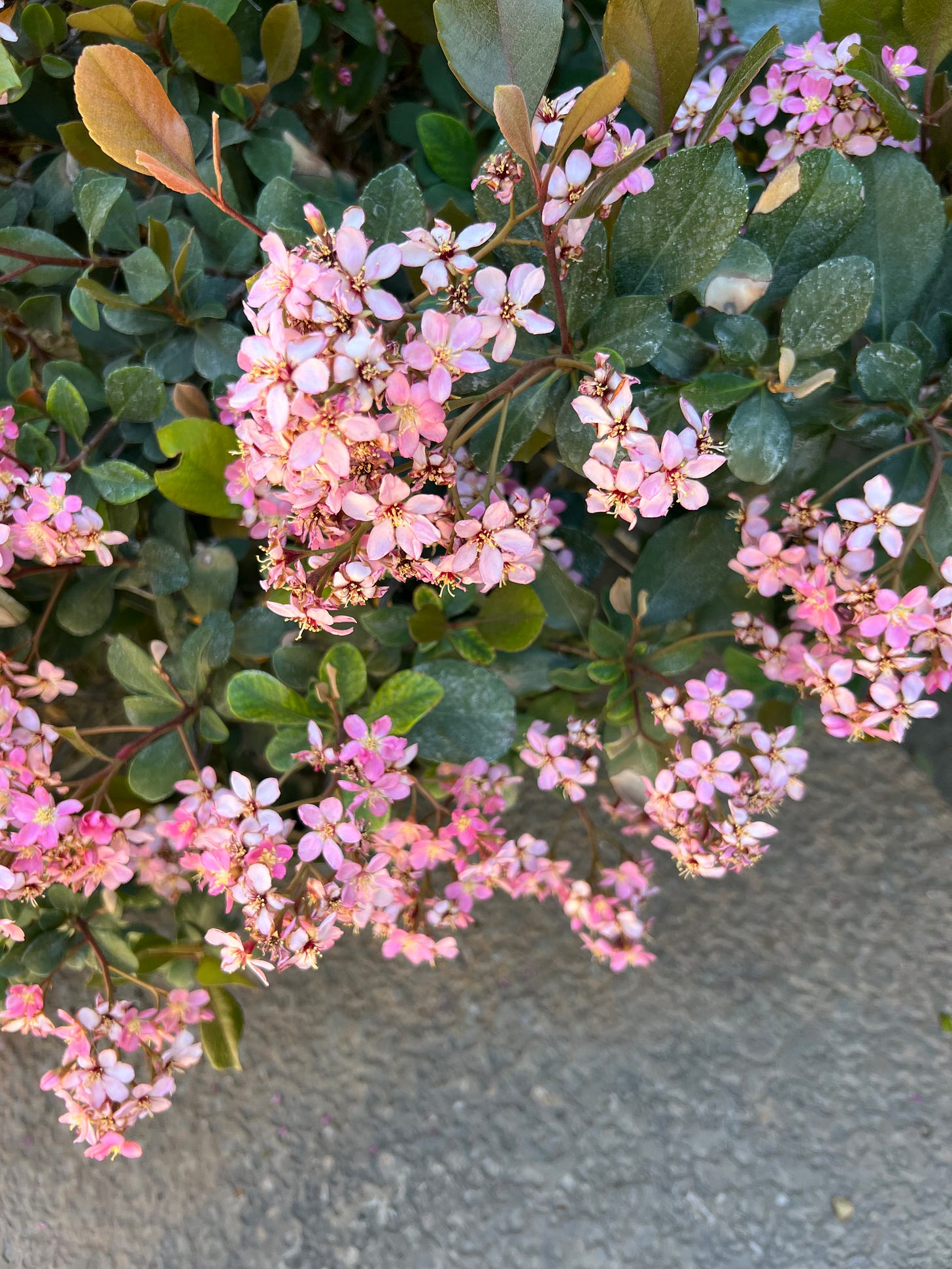Sometimes I sit around and fantasize about all the good we’re doing at Puddock Hill with regard to promoting native plants and supporting wildlife.
I picture all the trees we’ve planted growing into a forest, with the complex life of natural soils nourishing roots; nuts and fruits supporting birds and small mammals; blessed shade reducing temperatures on hot summer days.
Then I recall Bill McKibben’s seminal work, The End of Nature, the first book to clarify the threat of climate change in my mind. Too much rain or too little. Vicious winds or dead-calm days. Blizzards and cyclones. We used to know these things as acts of God. Now we are forced to debate whether any given event was an act of man, an unintended consequence of our environmental pollution.
I have written a good deal in this newsletter of fences and walls, their utility and their consequences. One thing I have failed to note is that a properly constructed fence does not stand forever and even a well-built wall doesn’t keep the whole world out.
Last fall, a brief but formidable windstorm passed through Puddock Hill. It dropped a half-dead pine that I had planned to leave standing as a snag, flattening two panels of deer fencing in the east woods as it crashed to the ground. We snapped into action and threw up a temporary fence lest the relentless deer herd get an opportunity to reverse much of the progress we’d made. Within a week, the fence guys showed up to finish the job, and we could feel secure again from those elegant native ungulates that our environmental reengineering has turned into enemies of native plants and all species that rely upon natural balance.
I don’t claim that climate change brought that particular wind storm, but I know it makes wind storms more likely. Similarly, extremes of precipitation, exacerbated by greenhouse gases, will make themselves felt at Puddock Hill no matter how much effort we expend to promulgate and protect native species.
Our collective endeavors as backyard stewards are absolutely necessary and yet insufficient. This Earth Day, I encourage everyone who’s reading this to reflect on steps we each can take to act as stewards not just of our yards but of the entire planet.
The World Resources Institute has published a useful summation of the task before us:
Here’s how I would translate this guidance into actions that people embracing backyard stewardship can take:
Retire coal plants. Go to your local utility website and switch to buying renewable energy off the grid.
Invest in clean energy & efficiency. If you have the space, consider installing solar panels, a wind turbine, or even small-scale hydropower. Invest in super-efficient heat pump technology when replacing water heaters and HVAC equipment.
Retrofit and decarbonize buildings. If your home relies on oil or natural gas for any reason, including cooking, think about upgrading to electric systems and feeding them renewable energy.
Decarbonize cement, steel, and plastic. Limit plastic use wherever you can, especially in the garden where microplastics can work their way into soil and groundwater. If you’re planning a project that involves cement, ask for low-carbon types, which are increasingly available though little-advertised.
Shift to electric vehicles. This goes for mowers and utility vehicles as well as cars. Also, replace gas-powered tools such as blowers and chain saws with electric.
Increase public transport, biking and walking. You don’t have to look at this only as a matter of public policy. When possible, choose the lighter transportation option.
Decarbonize aviation and shipping. When available, support companies aspiring to lower their carbon footprints. And support politicians working to get this done.
Halt deforestation & restore degraded lands. Think twice before cutting down that tree. If you must drop it, leave it on the property to return naturally to the soil and support wildlife. Find a corner of your property to reforest or, on smaller properties, to add one or two new trees. Fight deforestation in your area and educate your neighbors about local consequences, such as increasing destructive runoff.
Reduce food loss and waste and improve agricultural practices. Eat those leftovers! Compost if you have the space, or use a service, if available in your area.
Eat more plants & less meat. We are not vegetarians, but we try to eat vegetarian five days a week. If everyone in the developed world did so, the collective impact would be huge.
The backyard steward’s garden can be a refuge, but it is not an island. It’s easy for all of us to fall into the pattern of virtue signaling, thinking that the effort we’ve chosen to expend is enough, especially when some folks make no effort at all. Yes, those of us practicing backyard stewardship are doing a lot. And, yes, we can all do better still.
With collective effort, less climate change will be in the wind.
Spring at the desert house features aloe vera in bloom, not native to the American Southwest but at least a water sipper:
Another legacy, this Indian hawthorn, also not native, puts on a show this time of year:
This native chuparosa did not miss a beat, though we planted it late. One day it will hide the entire side of the grill:






